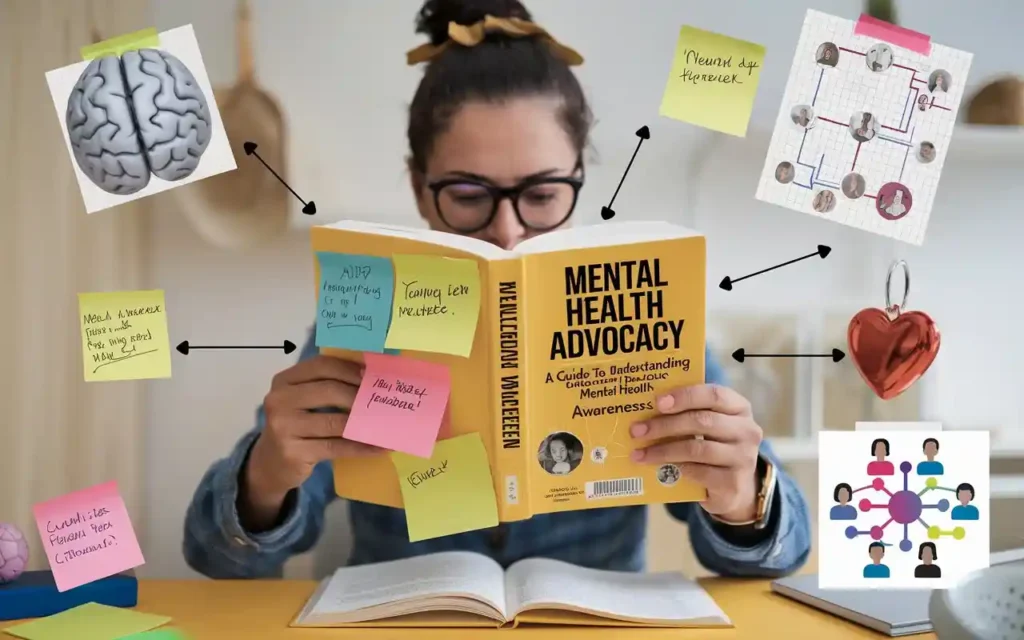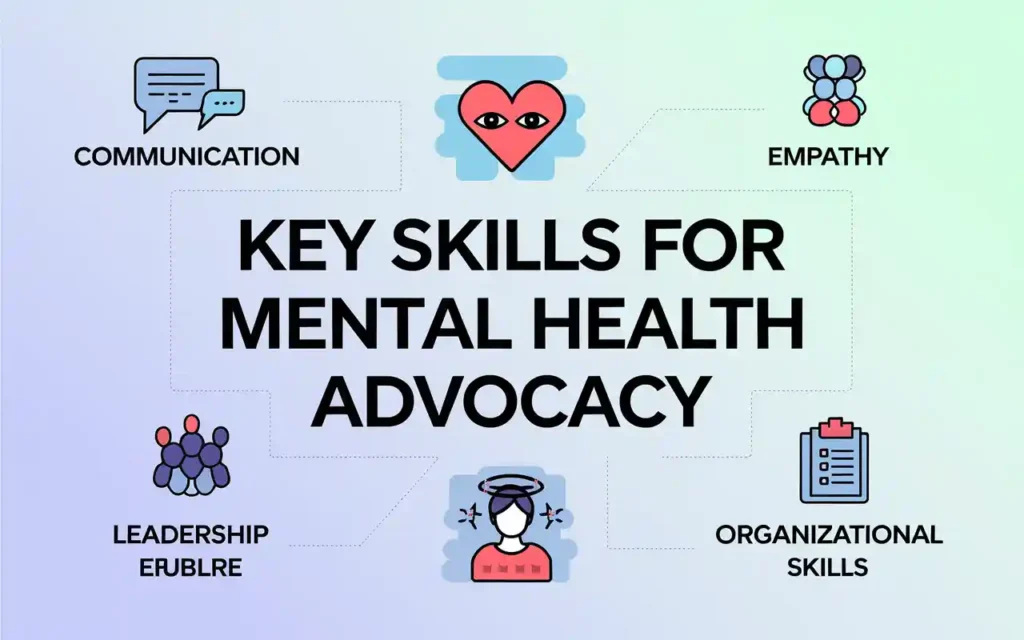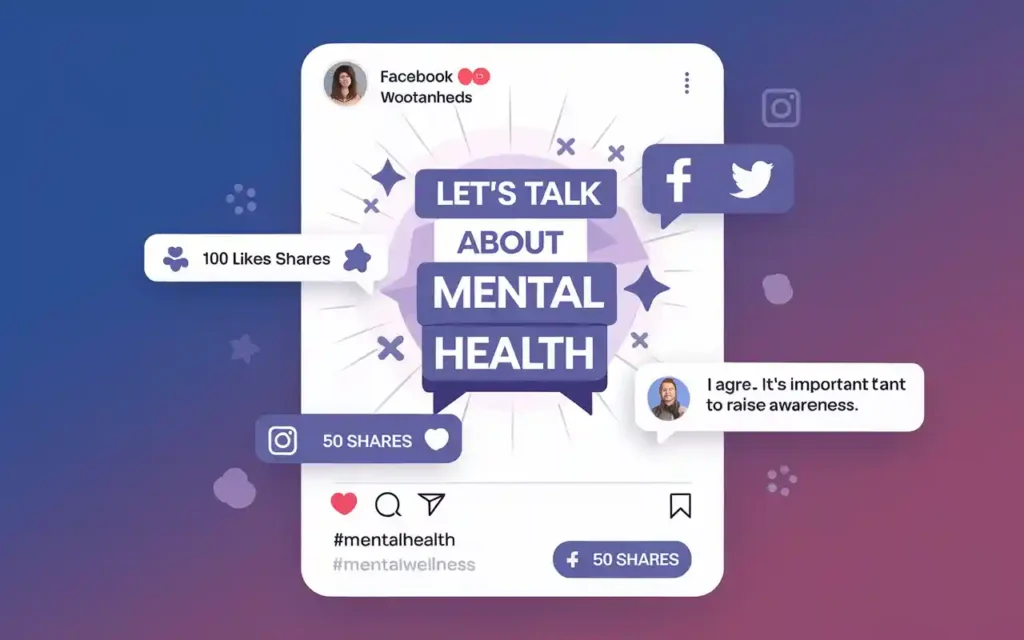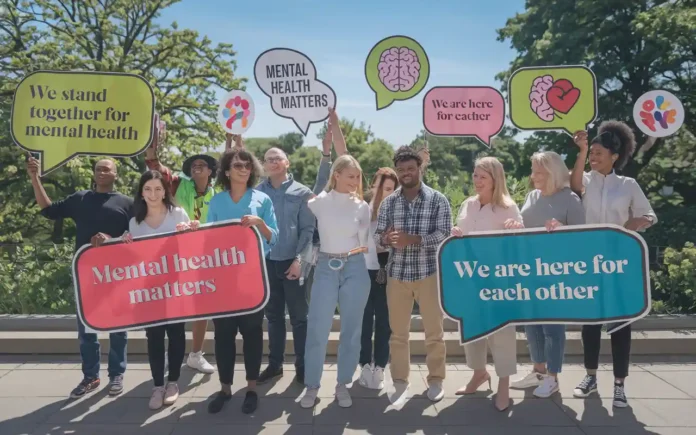How to Be a Mental Health Advocate: A Comprehensive Guide
1. Understanding Mental Health Advocacy

How to be a mental health advocate starts with a clear understanding of what advocacy entails. Mental health advocacy involves promoting mental well-being, reducing stigma, and ensuring access to necessary resources and support systems.
What is Mental Health Advocacy?
Mental health advocacy is the act of supporting and promoting policies, practices, and attitudes that enhance mental health care and awareness. Advocates work to influence public opinion, shape legislation, and create supportive environments for individuals facing mental health challenges.
Key Components of Advocacy
- Awareness: Educating the public about mental health issues.
- Support: Providing resources and assistance to those in need.
- Policy Change: Influencing laws and regulations to improve mental health services.
- Stigma Reduction: Challenging negative perceptions and stereotypes.
The Role of an Advocate
An advocate serves as a voice for those who may not be able to speak for themselves. This involves listening, understanding, and actively working to create positive changes in the mental health landscape.
2. The Importance of Being a Mental Health Advocate
How to be a mental health advocate is crucial because it addresses the gaps in mental health care and promotes a more inclusive and supportive society.
Why Advocacy Matters
Mental health issues affect millions of people worldwide. Advocacy ensures that individuals receive the support they need and that mental health is treated with the same importance as physical health.
Impact on Society
- Promotes understanding and empathy.
- Encourages early intervention and prevention.
- Reduces stigma and discrimination.
- Influences policy and funding decisions.
Personal Fulfillment
Being an advocate not only benefits others but also provides a sense of purpose and fulfillment. It allows individuals to contribute positively to their communities and make a meaningful difference.
3. Essential Skills for Mental Health Advocacy

How to be a mental health advocate effectively requires a specific set of skills that enable you to communicate, organize, and influence change.
Communication Skills
Clear and empathetic communication is vital. This includes active listening, public speaking, and the ability to convey complex ideas in an understandable manner.
Organizational Skills
Being organized helps in planning campaigns, managing events, and coordinating with other advocates and organizations.
Networking Abilities
Building a strong network of contacts, including mental health professionals, policymakers, and community leaders, is essential for effective advocacy.
Leadership
Leadership skills enable advocates to inspire and mobilize others, leading initiatives that drive change.
4. Developing a Mental Health Advocacy Plan

How to be a mental health advocate involves creating a strategic plan that outlines your goals, actions, and measures for success.
Setting Clear Goals
Identify what you aim to achieve, whether it’s raising awareness, influencing policy, or providing support services.
Action Steps
- Research and gather information.
- Develop a campaign or initiative.
- Engage with stakeholders.
- Implement and monitor progress.
Measuring Success
Establish metrics to evaluate the effectiveness of your advocacy efforts, such as increased awareness, policy changes, or community engagement levels.
Adjusting the Plan
Be prepared to adapt your strategy based on feedback and changing circumstances to ensure continued progress toward your goals.
5. Building a Supportive Community

How to be a mental health advocate includes fostering a community that supports mental well-being and encourages open dialogue.
Creating Safe Spaces
Ensure that individuals feel safe to share their experiences without fear of judgment or discrimination.
Engaging Stakeholders
- Mental health professionals
- Educational institutions
- Local businesses
- Community organizations
Hosting Events and Workshops
Organize events that educate and engage the community, such as seminars, support groups, and awareness campaigns.
Collaborating with Other Advocates
Work together with other advocates to amplify your efforts and create a more significant impact.
6. Leveraging Social Media for Advocacy

How to be a mental health advocate in the digital age involves utilizing social media platforms to spread awareness and engage with a broader audience.
Choosing the Right Platforms
Select platforms where your target audience is most active, such as Facebook, Twitter, Instagram, or LinkedIn.
Creating Engaging Content
- Share personal stories and testimonials.
- Post informative articles and resources.
- Use visuals like infographics and videos.
- Host live discussions or Q&A sessions.
Building an Online Community
Encourage followers to participate in conversations, share their experiences, and support each other.
Measuring Impact
Use analytics tools to track engagement, reach, and the effectiveness of your social media campaigns.
7. Advocating for Policy Change
How to be a mental health advocate involves influencing policies that affect mental health services and support systems.
Understanding the Policy Landscape
Research existing laws and policies related to mental health to identify areas that need improvement.
Building Coalitions
Collaborate with other organizations and stakeholders to strengthen your advocacy efforts.
Engaging with Policymakers
- Arrange meetings with legislators.
- Provide evidence-based recommendations.
- Participate in public hearings and forums.
Mobilizing Support
Organize petitions, letter-writing campaigns, and public demonstrations to show widespread support for policy changes.
8. Mental Health Advocacy in Educational Settings
How to be a mental health advocate within schools is vital for creating supportive environments for students and educators alike.
Promoting Mental Health Awareness
Implement programs that educate students and staff about mental health issues and resources available.
Supporting Students
- Establish peer support groups.
- Provide access to counseling services.
- Encourage open discussions about mental health.
Training Educators
Equip teachers and school staff with the skills to recognize and respond to mental health concerns effectively.
Creating a Positive School Culture
Foster an environment where mental well-being is prioritized, and students feel safe to seek help when needed.
9. Overcoming Challenges in Advocacy
How to be a mental health advocate often involves navigating various challenges, which can be addressed with resilience and strategic planning.
Dealing with Stigma
Combat negative perceptions by promoting positive narratives and educating the public about mental health.
Maintaining Personal Well-being
- Practice self-care regularly.
- Seek support from peers and mentors.
- Set boundaries to prevent burnout.
Securing Funding
Explore various funding sources, such as grants, donations, and crowdfunding, to support your advocacy initiatives.
Building Resilience
Stay committed to your mission despite setbacks, and continuously seek ways to improve and adapt your strategies.
10. Resources and Training for Mental Health Advocates
How to be a mental health advocate is made easier with access to the right resources and training programs that equip you with the necessary knowledge and skills.
Educational Programs
- Online courses on mental health advocacy.
- Workshops and seminars conducted by experts.
- Certification programs for professional development.
Support Networks
Join organizations and communities that provide support, guidance, and collaboration opportunities for advocates.
Useful Tools and Resources
| Resource | Description | Link |
|---|---|---|
| Mental Health America | Provides resources and information on mental health advocacy. | Visit Site |
| National Alliance on Mental Illness (NAMI) | Offers training and support for mental health advocates. | Visit Site |
| Advocacy Training Institute | Provides comprehensive training programs for advocates. | Visit Site |
Books and Publications
Expand your knowledge with recommended readings on mental health advocacy and related topics.
References and Further Reading
Conclusion
Learning how to be a mental health advocate empowers you to make a significant impact in your community. By understanding the fundamentals, developing essential skills, and leveraging available resources, you can drive meaningful change and support those affected by mental health challenges.
Remember, advocacy is a continuous journey that requires dedication, empathy, and resilience. Start today, and contribute to a more supportive and informed society.




